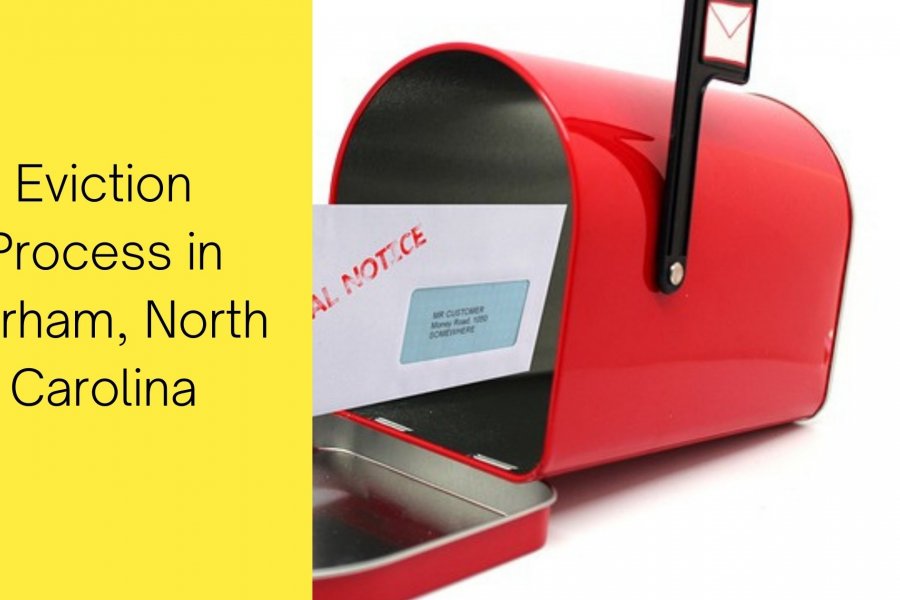
Being a landlord can be both rewarding and demanding. It can be smooth sailings when you have great a tenant that abide by the terms of the agreement and respects the rental property.
However, it can become less wonderful when certain things go south. For example, as a landlord, you can face major headaches if a tenant fails to pay rent or causes excessive unit damage.
Sadly, dealing with such issues can emerge in any landlord’s career. As such, learning how to handle North Carolina law is key. Many landlords choose to enlist the services of an established local residential management company when beginning to serve notices, including understanding filing processes like summary ejectment and issuing a rent demand notice.
When everything else has failed, requesting the tenant to vacate through summary ejectment may be the only option left. Durham landlords must abide by the state’s tenancy and landlord-tenant laws and follow the proper judicial process, often involving summary ejectment or small claims court. This process includes paying the required filing fee and attending the scheduled court date.
To learn more about the process in North Carolina and eviction laws, including filing through small claims court, keep reading! Either the landlord or the tenant will have a ruling in their favor at the end of the process.
Guide to the North Carolina Eviction Process
Step 1: Have Legal Justification
As per the North Carolina law, a proper rental agreement gives each tenant the right to remain on the unit until the lease term expires unless they violate the lease.

Some of the most common rental or lease agreement violations by tenants in Durham include:
- If the tenant fails to pay the rent or stops paying rent past due rent owed
- Habitually late payment of rent
- Failing to adhere to the terms of the lease agreement. For example, keeping an unauthorized pet or subletting the unit without the landlord’s permission.
- Committing illegal activities at the rental, such as the manufacturing or selling of illegal drugs
- Causing excessive unit damage
A landlord must not remove a tenant simply because they no longer get along. Both the landlord and tenants must follow North Carolina’s rental laws and the lease agreement. Additionally, if a landlord fails to follow the legal process, removing a tenant may become challenging. An example of this would be a landlord removing a tenant’s personal items from the rental unit or initiating a retaliatory removal.
Step 2: Notify the Tenant of the Violation.
An awareness of North Carolina's landlord-tenant law is key to understanding how to proceed with the notice.
The ongoing COVID-19 pandemic has also had an effect on how evictions are handled in the state of North Carolina.
Once a landlord has a legitimate reason to evict the tenant from the rental premises, the next step is to serve them with a notice of eviction. In the written notice, the landlord must state two important things.
The first important disclosure is the reason for the eviction; the second is the time the tenant has to correct the violation (if that’s an option) or else a landlord wins the case automatically.

There exist different types of eviction notice available to North Carolina landlords, depending on the lease violation committed within the tenant rented property.
- Eviction for nonpayment of rent: A landlord must serve the tenant with a 10-days’ Pay or Quit Notice for a failure to pay rent. The notice tells the tenant that they have 10 days to make the rent payments due or move out. If the tenant doesn't pay rent or move out, the landlord can proceed to court for further action.
- Eviction for violation of the lease agreement: As a landlord, you may also evict tenants who fail to uphold their responsibilities as per the lease terms. Common lease violations that fall under this category include keeping an unauthorized pet, and exceeding the rental limit.
For such lease violations, the law doesn’t require private landlords to serve the tenant with any notice. A landlord can proceed to court immediately.
Eviction Process in North Carolina for Holdover Tenants
A holdover tenant is one who continues to stay in the rental property after their lease is over. The type of notice to serve such tenants depends on the length of the lease.
For a weekly rental agreement, as the landlord, you must serve the tenant with a 2 Day Notice to Quit. For a monthly agreement, you must serve them with a 7-Day Notice to Quit. And for a yearly lease, you must serve them with a 30-Day Notice to Quit.
Again, if the tenant doesn’t move out after the notice period, you can move to court for further help.
North Carolina Eviction Process for Illegal Activities
As a landlord, you aren’t required to serve a tenant found to have committed any criminal activity a North Carolina eviction notice. Illegal activities can take either of two forms.
One category of illegal activity is that that affects the safety, health, or peaceful enjoyment of the tenant's property. Another form of illegal activity can come in the form of the manufacturing, possession, or use of a controlled substance.
Step 3: File the Complaint in an Appropriate Court
The next step in the eviction proceedings is to move to court and file a complaint. There will be a eviction filing fee involved, usually about $100.

After the landlord files an eviction lawsuit or complaint to the court, the summons will then be served on the tenant by a process server, typically the sheriff. This will happen within 5 days after the complaint is filed.
Step 4: Attend the Court Hearing
If you, the landlord, file the complaint in a small claims court or district court, the eviction hearing could happen in as few as 7 days once the tenant is served with the summons.
However, the same could take longer if you do the filing in a district court. Generally, an expedited court hearing may be held within 30 days.

If the tenant doesn't show up to small claims court for the hearing of their eviction case, the court will probably issue a default judgment in your favor maybe covering paid rent and court costs. However, if the tenant does appear, the court will first listen to both parties prior to making a determination. If the tenant refuses to leave after a ruling in your favour, contact the sheriff's office to remove them.
Tenant defenses to the eviction case include the following wherein the district court judge may rule in their favour:
- The landlord used “self-help” eviction procedures such as removing a tenant's personal property: As an NC landlord, you must use the proper judicial process to evict a tenant from your rental property. (N.C. Gen. Stat. § 42-25.6.).
- You cannot attempt to remove the tenant in any other regardless of the violation committed. Examples of illegal eviction procedures include changing the locks and shutting off utilities.
- The landlord failed to follow all the necessary procedures: Even in the judicial eviction process, you must ensure you follow all procedures meticulously. One common blunder is failing to serve tenants with proper notice.
- A mistake in the eviction process will mean a longer time in evicting the tenant.
- An eviction is a retaliatory act against the tenant: Tenants have a right to live in a habitable rental property. And they have a right to complain when the unit fails to meet habitable standards.
- If you try to evict a tenant for complaining about the unit’s indecent conditions, that would be a retaliatory act such as removing a tenents personal property.
- The eviction is discriminatory: You cannot try to evict a tenant based on protected characteristics. Protected characteristics include sex, religion, color, race, familial status, national origin, and disability.
Step 5: Get Possession of the Property Back
If the court rules in your favor, you’ll be issued with a writ of restitution. This is a legal document that gives the tenant the final notice to leave. The court normally issues it 10 days after a successful ruling and judgement. If a tenant ignores this, then you can apply for a writ of possession that will allow a county sheriff to remove the tenant or having an eviction hearing.
No landlord in Durham, North Carolina wishes to evict a tenant. But as a landlord, issueing a writ of possession may be inevitable. Having the knowledge of how a writ of possession works, will help you navigate it smoothly. If you're looking for more assistance, get in touch with a trust property company like Weichert Realtors | Mark Thomas Properties Property Management today.
Disclaimer: This information is for educational purposes. For legal help, please consult a qualified attorney.
